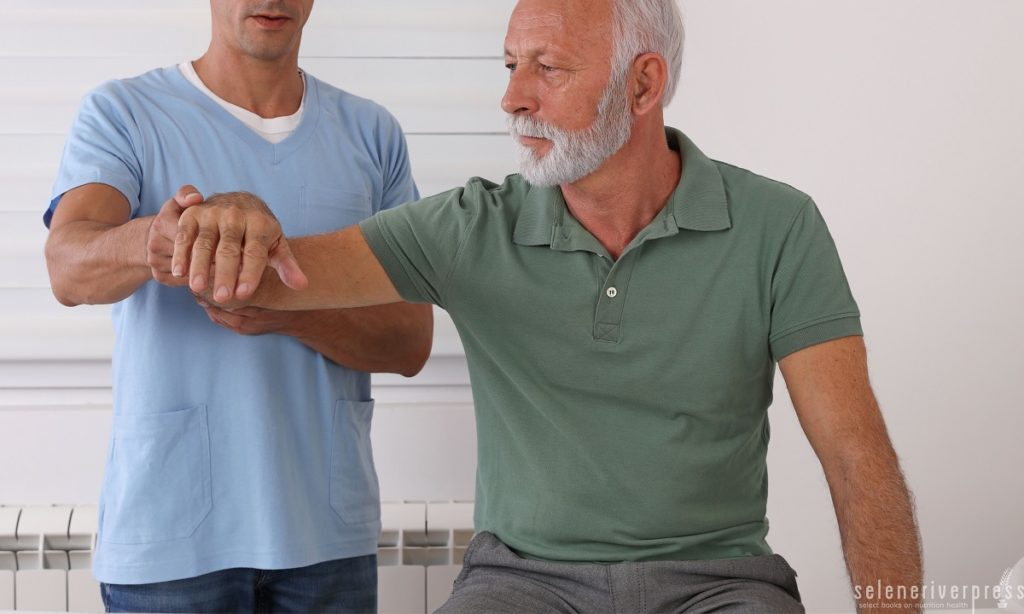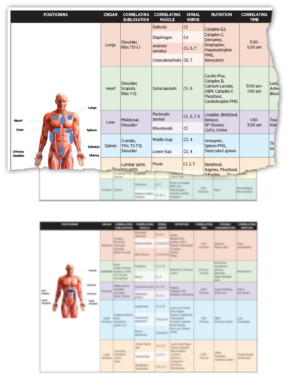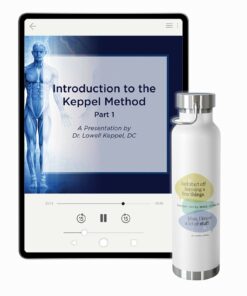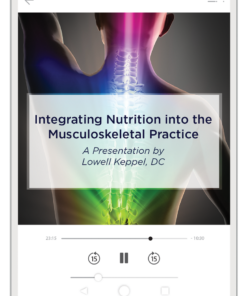Muscle testing—what a wonderful tool. Chiropractors have been using it successfully since 1964, and since then other healthcare practitioners have incorporated it into their practice, including neurologists. Yep, on the sidelines of sporting events you will occasionally see a neurologist pushing on an athlete’s arms to determine neurological injuries.
Muscle testing was developed by Dr. George Goodheart. He was the first to realize that the Endocardiograph—a device invented by Dr. Royal Lee for obtaining heart sound recordings—could be used on other muscles as well. I imagine he thought to himself, “Heck! If I can get a recording of the heart muscle, give some Standard Process whole food concentrates, and see a change for the better in minutes, why can’t I do this with other muscles?” This idea set Dr. Goodheart on the mission of developing muscle testing, which he called Applied Kinesiology.
True or False?
- Muscle testing is voodoo. False.
- Muscle testing doesn’t work. False.
- Muscle testing can tell me everything. False.
- As the tester I can manipulate the muscle testing. True.
- Muscle testing can be reliable and accurate. True.

- Muscle testing can detect imbalances of the body before they show up on blood tests. Very true.
- Scientific research does not support muscle testing as reliable. False.
In the beginning, muscle testing was highly criticized as being nonscientific. But that is not how Dr. Goodheart rolled. Volumes of research support its effectiveness. This paper published by ONE Research Foundation offers just one example: “Scientific Validation of the Mind/Body Paradigm and Muscle Testing.” Indeed, you will find many other research studies verifying the effectiveness of muscle testing and other procedures at this website.
Since Dr. Goodheart first invented muscle testing, many of his students have added their ideas. Some have been valuable, while others have been misguided claims that muscle testing can, for example, predicate the future or tell you how to live your life. I have studied many muscle testing procedures. What I’ve found with all of them is that they give practitioners and patients a procedure, a flow chart, a starting point. Which is essential.
It is not uncommon for healthcare providers to avoid certain products or techniques because they don’t understand how to use them or how to assess the needs of their patients. This is why I felt compelled to develop a simple, reliable, efficient, and reproducible testing technique for practitioners, which I have based on information I learned from Dr. Dick Versendaal (Contact Reflex Analysis), Dr. Victor Frank (Total Body Modification), and especially Dr. Scott Walker (Neuro-Emotional Technique).
I have been teaching Muscle Response Analysis (MRA) since 2012. Along with Selene River Press, I have made this technique available to all healthcare providers who want to learn it. In conjunction with Neuro-Emotional Technique, homeopathic remedies, herbal support, and, of course, Standard Process whole food concentrates—not to mention the nutritional genius of Dr. Royal Lee— muscle testing provides an inexpensive form of analysis that can help practitioners determine the treatment that delivers the best results for patients. Which is the goal. Results refer!
Testimonials
“MRA provides effective results for your patients/clients…gives your clients confidence that the supplements will help…gives you a starting point if you aren’t sure of the patient’s biggest health needs.”
—Angela Baird, CCN, Parker, CO
“I’ve taken Dr. Keppel’s MRA training a few times and have the video for reference in my office. His charts are in each of my treatment rooms along with the quick reference charts. I can say with certainty that his videos have given me a very good understanding of Royal Lee’s philosophy and methods.”
—Dr. Carl Malone, Ft. Collins, CO
Check out my MRA e-learning course, MRA Chart, and MRA Quick Points Guide! I am confident these products will improve your testing and results. After all, it’s about enhancing the patient’s life.
Image from iStock/Albina Gavrilovic.






